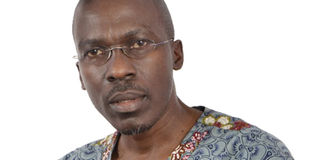EAC should go to Japan with common economic agenda

What you need to know:
Ignore trivial competition. EAC leaders and delegations must go beyond trivial competition to harmonisation of policy direction.
The interview with Japanese Ambassador to Uganda, Mr Kameda titled, “What Uganda should expect from upcoming Japan summit’ in the Sunday Monitor of August 18, was interesting. As the world braces for World Bank- IMF (WB-IMF) Annual meetings (October 18-20) in Washington, US, something is “cooking” in Japan in August 28-30 at Pacifico in Yokohama City in Japan. This will be under the auspices of Tokyo International Conference on African Development (TICAD).
Similar to the earlier one, Forum on China-Africa Cooperation (FOCAC) in July 2019, falcons, jets and other fashionable aircrafts will carry African leaders and delegations to the August TICAD and later on to October 2019 WB-IMF high level meetings. The Ugandan delegation particularly will meet several of their brothers in Japan (at least by name), including Mr Kato - head of Japan International Cooperation Agency (JICA) Africa Department. At the invitation of Japan Prime Minister Shinzo, the Japanese know what they want. African leaders and delegations must do homework, beyond just French-wines, groceries and Japanese greenery.
In case of East African Community (EAC) leaders and delegations, they must mature to common voices when facing global powerhouses. We can no longer afford to go as disjointed Rwanda, Burundi, Uganda, Tanzania, South Sudan or Kenya. What a formidable force we East Africans would be if we agreed to a common economic agenda to the TICAD forum often co-hosted with United Nations, United Nations Development Programme (UNDP), World Bank and African Union Commission?
EAC leaders and delegations must go beyond trivial competition to harmonisation, for consistent policy direction that eventually secures a win for the African people. Taking an example of WB-IMF Spring and Annual meetings, opportunities are abound to aggressively and jointly market EAC as tourism destination. The investment thereof along the supply chain earns the region an impressive economic dividendsuch as employment, sanitisation of hotels and eating places, travel agents and EAC regional airlines, thus revenues for public sector investment capacities.
Remember the meetings tend to attract in excess of 3,000 African and other global delegates, 600 civil society and private sector actors, and 300 observers. With more than 1,000 media practitioners in attendance, there is a huge opportunity to regularly defuse the negative publicity about Africa.
Beyond isolated cases of Ebola and Marburg, there are spectacular Inga Dam and Kariba Falls, source of the longest river in the world, Nfuudu in Mengo, Rwenzoris and Meru, lovely people and weather, organic foods, African level cruise boat trips, less- cholestral beef, flora and fauna. Globally, at least three EAC states have been ranked among the top 12 fastest growing tourism destinations. In the case of Uganda, tourism has over a couple of financial years, been the single highest foreign exchange earner at an average of $1.5m and Kenya nearly $2b by close of 2018 alone.
Meanwhile, the realities of a rather shrinking global economic outlook that has implication on the EAC economies - people, currency volatility and investments - will obtain over the medium-term. There is a global downscale of concessional loans amid heightened financial risk outfit. This will compound the already upscale of debt across EAC. The EAC leaders and delegations must, therefore, jointly invest in new ground in earning revenues.
The euphoria that comes with such forums as FOCAC in July, WB-IMF Annual meetings in October 2019 is fertile grounds for marketing to the world that EAC is a worthwhile tourist destination.
Mr Kapwepwe is the director programmes - Uganda Debt Network.




